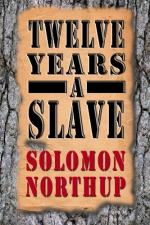
|
| Name: _________________________ | Period: ___________________ |
This test consists of 15 multiple choice questions and 5 short answer questions.
Multiple Choice Questions
1. Why did Tibeats not attack Ford when Ford confronted him about his mistreatment of Solomon?
(a) Because he was planning to attack Ford at a later time.
(b) Because Tibeats respected Ford as a man.
(c) Because Ford was a lot older than him and he did not fight older men.
(d) Because he knew that he would get in trouble with Chapin.
2. What did Freeman's customers tend to keep in mind as they shopped around his pen?
(a) That although Freeman had the highest prices in town, he did offer the best animals on the market.
(b) That regardless of the animal that they chose, they would get a good price from Freeman.
(c) That Freeman was known to charge more than what his animals were really worth.
(d) That they were there to buy a clean and hardworking animal in tip-top condition.
3. Why was Solomon confident that everything would be fine at home if he left town with Merrill Brown and Abram Hamilton?
(a) Because he did not expect to be gone for very long.
(b) Because the children did not need a babysitter; and his wife, Anne was too busy to notice his absence.
(c) Because he trusted his wife, Anne to handle things while he was gone. She had done it before.
(d) Because all of his family members were engaged in routine activities.
4. Why did Lawson take off in such high speed to find William Ford upon Chapin's request?
(a) He really wanted to get Solomon some help.
(b) He wanted to beat the last speed record he set while running his mule into town.
(c) He wanted to impress Mr. Chapin.
(d) He wanted to show just how fast he could make his mule run.
5. Aside from providing Solomon with favorable notoriety around Bayou Bœuf, his raft-building for Ford also provided him with which of the following?
(a) A higher position among Ford's slaves.
(b) Experience in raft-building.
(c) Victory over Adam Taydem.
(d) A visiting pass to the plantation of his choice.
6. Which of the following was one thing that Tibeats had a reputation of using when trying to out-maneuver his enemies?
(a) The element of surprise.
(b) A pack of dogs.
(c) A hatchet.
(d) A pistol.
7. How could the outcome of the talk between William Ford and John M. Tibeats with respect to the mistreatment of Solomon be described?
(a) As a victory for Tibeats.
(b) As a loss for Chapin.
(c) As a victory for Ford.
(d) As a loss for Ford.
8. In one phrase, describe how Solomon perceived William Ford to be of value to him.
(a) As a provider.
(b) As an example.
(c) As a refuge.
(d) As a teacher.
9. How were Solomon and Arthur (the slave who boards the Orleans in Norfolk) fundamentally alike?
(a) They both had families to support.
(b) They both loved and played the violin.
(c) They both shared a desire to escape from slavery.
(d) They were both free men.
10. Who was likely to be behind the idea of Jacob Brooks taking Eliza to get her freedom papers?
(a) Mrs. Berry and her daughter.
(b) Jacob Brooks.
(c) Eliza.
(d) Elisha Berry.
11. Why was Clemens Ray upset as he headed south aboard the Orleans?
(a) He was being separated from his wife.
(b) He was having to leave longtime friends behind.
(c) He was not sure who his new master was going to be.
(d) He was having to leave his children behind.
12. For the most part, how did Solomon consider his life as a slave for William Ford to be?
(a) Pleasant.
(b) Unpleasant.
(c) Interesting.
(d) Uneventful.
13. How did Solomon view his carpentry work under Myers?
(a) As an opportunity to escape from the area.
(b) As an escape from Tibeats.
(c) As an escape from the ordinary.
(d) As a learning experience.
14. What was the purpose of having Jacob Brooks accompany Eliza to get her freedom papers?
(a) To make sure that the proper freedom papers were issued to her.
(b) To help her find the place where freedom papers were issued since she did not know how to get there.
(c) To mislead her into a life of slavery.
(d) To vouch for her qualifications so that she would be issued freedom papers.
15. Aside from Bibles, what did William Ford provide his slaves that other slave owners seemed to overlook or not consider to provide them with at all?
(a) Bath soap.
(b) Winter clothing.
(c) Fork.
(d) Skillet.
Short Answer Questions
1. Which adjective pair best described Solomon, his brother, and father?
2. Why was it important to Chapin to keep a dog on the property of the great house where he and Solomon stayed?
3. Why did Chapin send for Ford when he was the overseer of Ford's Plantation?
4. What type of reputation did Solomon maintain while living in Saratoga Springs?
5. Why did Solomon trust Merrill Brown and Abram Hamilton when he first met them?
|
This section contains 895 words (approx. 3 pages at 300 words per page) |

|




